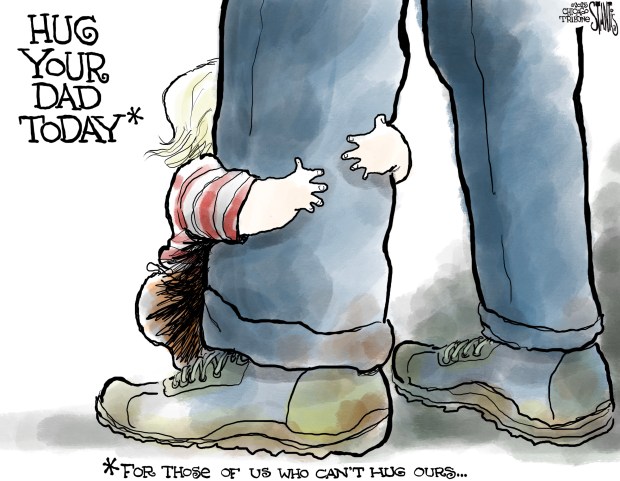It’s an age-old maxim to say politics is a game of addition, not subtraction. Coalition building is about bringing people together. By bringing more people to the table, you create an environment where opinions can be heard, more data is considered and a plan is drafted with all voices echoing in its construction.
Subtraction and division are no way to govern, or lead. Any competent first grade teacher will tell you: students who cannot grasp the basics of simple addition are bound for failure when the math gets harder. I haven’t seen Mayor Brandon Johnson’s elementary school report cards, but I can tell you this former teacher-turned-mayor gets an F in governing, both in style and substance or lack thereof.
Johnson won his election by the slimmest of majorities. Conventional political wisdom would say Johnson should have gotten to work reaching out to those who opposed his campaign’s slogan-based policies and worked to develop more nuanced and pragmatic solutions to address the city’s many problems. That’s what leaders do. That’s addition. That’s not what Johnson did.
Instead, he insulated himself with his well-funded extremist allies who bankrolled his campaign and the small band of other political groups that have also benefited. It began with his efforts to divide the City Council to defeat a potential landmark effort to institute independent committee chairmanships.
Democratically elected aldermen are Chicago residents’ most direct voice. They had the potential to expand this voice by bringing more representation and diversity to ordinance deliberations by having independent leaders of the city’s committees. Instead, Johnson maneuvered to isolate and exclude enough aldermen from this effort and drove enough wedges to fracture the effort and maintain the machine-like process of decreeing committee assignments and leadership.
However, it was his hand-picked leaders who began displaying their own divisive tendencies (often in council chambers) that brought this administration’s style to the public eye. First, we witnessed the physical harassment of one alderman, heard on-the-record testimonies of other aldermen being threatened and belittled by one of Johnson’s chairmen, and heard endorsements of rhetoric that many consider antisemitic. Johnson recently encountered a setback in his failed efforts to swap one of these aldermen, who was forced to resign his position, with another whose associations with flag-burning activists was even too much for the council to stomach.
The real turning point was the so-called Gaza vote. Johnson’s tie-breaking vote to pass a symbolic resolution with no real-life implications was a bone to the activist groups who packed City Hall and filled the chambers with more hurtful chants. The council was divided down the middle. Tensions were high and decorum nonexistent, and like a slice down the middle of the body, Johnson used his vote to alienate vast swaths of the council and sent a clear message that unity is not the driving force of his administration.
But the real voices Johnson should listen to are not the circle of advisors. It is not even the voices of the City Council. The real guiding force should be what Chicago residents expect, demand and deserve. The failure of the Bring Chicago Home ordinance should have been a wakeup call, but it fell on deaf ears. And it shows, as the mayor’s approval ratings sink lower than any other mayor in recent history.
As we approach the closing days of Chicago’s utilization of the gunshot detection technology ShotSpotter, we see again the willful exclusion of aldermen, public safety experts and, most importantly, residents who live in communities plagued by senseless violence. Instead, the administration has silenced these voices and remains in the echo chamber of slogan-based demands from “advocates” whose suburban upbringing has apparently gifted them the wisdom to know what’s best for Chicago’s Black and brown residents.
And most recently, the mayor’s defense of chief advisor Kennedy Bartley may be the most baffling political mistake this mayor has made. Chicago political history is littered with staffers falling on their swords whenever their behavior threatens the image and effectiveness of their boss. Galleries could be filled with names of mid- to high-level staffers who have had to resign for being caught for anything from an embarrassing night at the bar or an old social media post to high crimes and misdemeanors.
Bartley’s rhetoric is some of the vilest I have heard from a public employee. And they were stated with such profanity-laden conviction and self-assuredness on a public podcast preserved for posterity. These were not private conversations between friends over coffee. This was meant to be heard. It was meant to incite. Bartley should have never been hired. Anybody tasked with vetting her should also answer for green-lighting her employment. You cannot serve the public when you use speech that endangers and encourages violence against thousands of other public employees. The only fitting apology should be a public letter of resignation.
Time after time, Johnson has shown the guiding concept of his politics and governing is not one of addition but of subtraction and division. Missteps and miscalculations are shaping up to be the defining features of his tenure. However, unlike school, it is not the student that failed when he gets the bad grade. When you’re the mayor, it’s the city. Leadership sets the course, whether toward prosperity or hardship.
As we face a $1 billion budget deficit and institute a hiring freeze, Johnson has to get his financial and political math checked twice before we see if he’s going to make the grade. His actions thus far leave me without much confidence, but for the sake of our city, we should all stand ready to roll up our sleeves and break out the calculators. Because as our last mayor learned: Unlike school, where the failed term means a repeat, in politics it’s a defeat.
Ald. Silvana Tabares represents the 23rd Ward.
Submit a letter, of no more than 400 words, to the editor here or email letters@chicagotribune.com.




